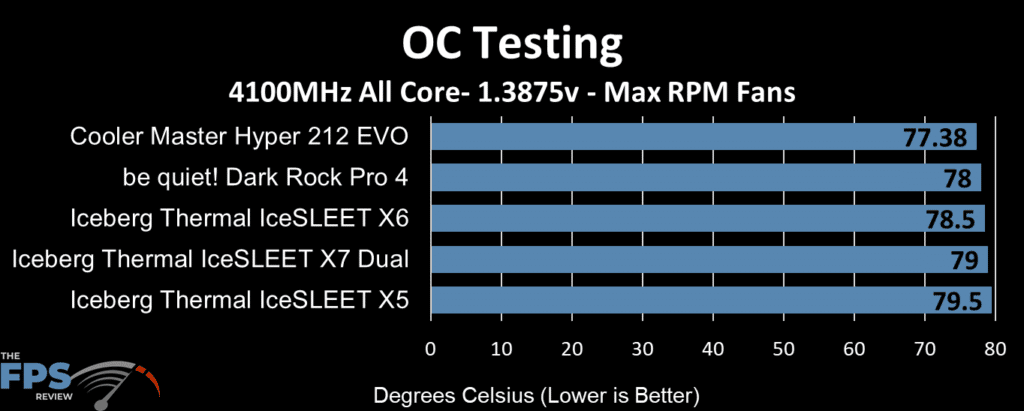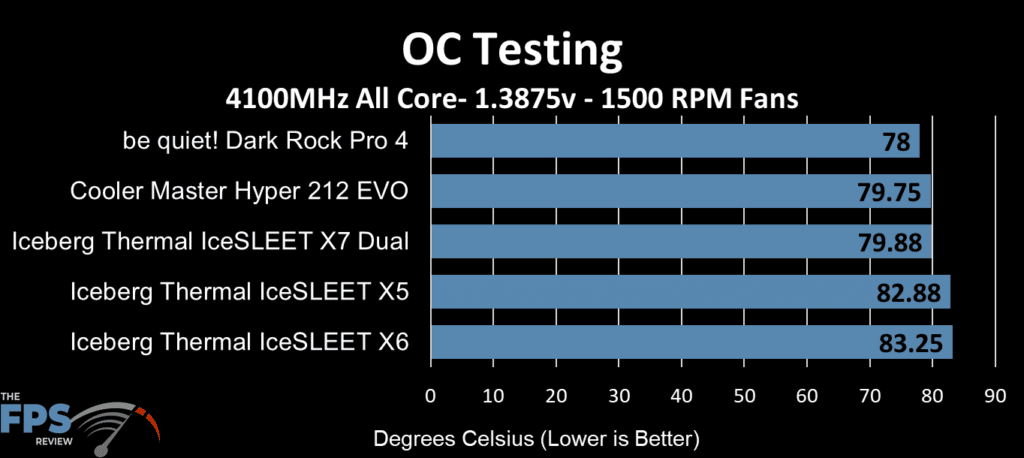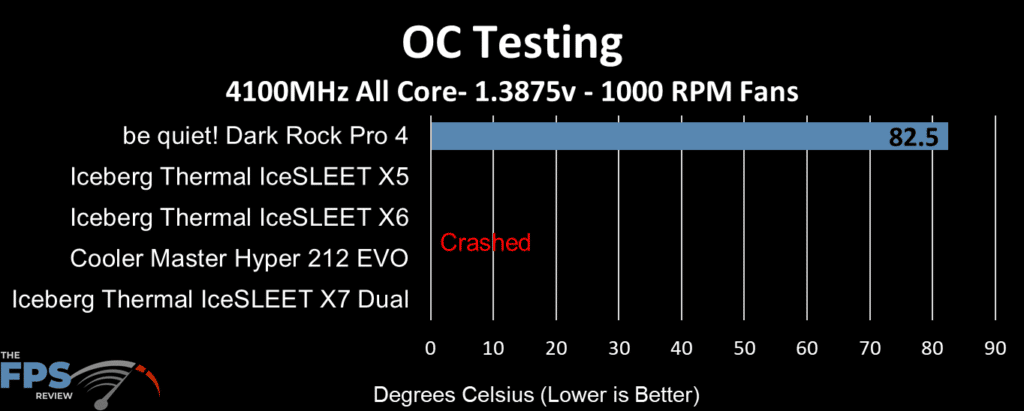OC Testing
For our OC testing, we have configured our CPU to run 4100MHz on all cores and set the voltage to 1.3875V. This yields an approximate power at the wall of 255w under load (a 197w differential from idle, which pulls about 58w). This results in the CPU running at 4.1GHz on all cores during the looping rounds of Cinebench R20.
Max Fans
Running our HSFs at full tilt leads to the Iceberg Thermal IceSLEET X5 posting a temperature of 79.5 degrees Celsius which is just behind the X7 Dual which is posting a temperature of 79 degrees Celsius. It trailed the Cooler Master Hyper 212 EVO (77.38 degrees Celsius) and be quiet! Dark Pro 4 (78 degrees Celsius). We noted that the max fan speed on the Cooler Master Hyper 212 EVO topped out at 2050 RPM, the Iceberg Thermal IceSLEET X5 and X6 topped out at 1900 RPM, the Iceberg Thermal IceSLEET X7 Dual topped out at 1600 RPM, and the be quiet! Dark Rock Pro 4 has the lowest max fan rpm at 1500 RPM.
1500 RPM Fans
At the 1500 RPM fan speed, the be quiet! Dark Rock Pro 4 leads all challengers at 78 degrees Celsius while the Cooler Master Hyper 212 EVO posted a value of 79.75 degrees Celsius. The Iceberg Thermal IceSLEET X7 Dual was right on the Hyper 212 EVO’s heels at 79.88 degrees Celsius. Then, strangely, we see the IceSLEET X5 at 82.88 degrees Celsius while the IceSLEET X6 was watching everyone from the rear at 83.25 degrees Celsius.
1000 RPM Fans
At the 1000 RPM fan speed, the be quiet! Dark Rock Pro 4 posted a value of 82.5 degrees Celsius. The Cooler Master Hyper 212 EVO, Iceberg Thermal IceSLEET X7 Dual, Iceberg Thermal IceSLEET X6, and Iceberg Thermal IceSLEET X5 all failed to keep the temperature in check here and our system crashed.
Now that we have seen how all of our units cool, lets see if we can still hear!



